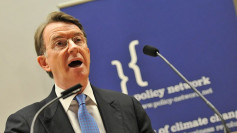King Charles faced public criticism during his visit to Australia's Parliament House in Canberra on Monday, as Indigenous Senator Lidia Thorpe accused him of "genocide" and demanded a treaty for Australia's Indigenous people. The confrontation came moments after Charles delivered a speech in which he acknowledged the traditional custodians of the land, marking a stark contrast to the respectful tributes offered by other officials.
Thorpe, an independent senator and prominent Indigenous activist, interrupted King Charles by shouting, "You committed genocide against our people. Give us our land back. Give us what you stole from us-our bones, our skulls, our babies, our people." The senator, known for her vocal protests against the colonization of Australia, also called for a national treaty between the government and Indigenous Australians. "We want a treaty. We want our land back," she exclaimed as she was escorted out of the chamber.
King Charles, who appeared unfazed by the incident, briefly spoke with Australian Prime Minister Anthony Albanese before continuing his visit. Buckingham Palace declined to comment on the protest, but a palace source expressed gratitude for the warm reception the royal couple had received from thousands of Australians, noting, "The warmth and scale of the reception was truly awesome."
Former Australian Prime Minister Tony Abbott, who was present at the event, dismissed Thorpe's actions as "unfortunate political exhibitionism." Despite the disruption, the visit continued with a series of tributes to King Charles and Queen Camilla from both government officials and well-wishers.
Prime Minister Albanese delivered a speech in which he spoke of Australia's respect for the monarch and praised Charles for his long-standing advocacy on climate change. "The Australia you first knew has grown and evolved in so many ways," Albanese said. "Yet through these decades of change, our bonds of respect and affection have matured-and endured." He also acknowledged the country's republican aspirations, which remain on hold after a recent referendum to create an Indigenous advisory body was defeated.
The royal couple's visit to Parliament followed a stop at the Australian War Memorial, where Charles and Camilla were greeted by over a thousand well-wishers, including a nine-year-old alpaca named Hephner. Dressed in a suit and crown, Hephner waited patiently alongside his owner, Robert Fletcher, for a chance to greet the King. "One king meets another king," Fletcher quipped as Charles stopped to pat the alpaca, pulling back with a laugh when Hephner snorted in his face.
Thorpe's protest was an outlier during what was otherwise a day filled with warm receptions and ceremonial tributes. The visit, Charles's 16th official trip to Australia and his first major foreign visit since being diagnosed with cancer, is part of a broader effort to reaffirm ties with Commonwealth nations. Despite calls from some republican groups to meet with the King, Buckingham Palace has reiterated that any decision on whether Australia becomes a republic is entirely up to the Australian people.
Observers noted that Charles's visit comes at a sensitive time for Australia, as the debate over the monarchy's role continues to divide public opinion. A recent poll showed that support for a republic had declined to 33%, down from 39.4% during the last referendum on the issue in 1999. While the King has maintained that he is open to any decision the Australian people make regarding the monarchy, his visit has highlighted the lingering tensions surrounding Australia's colonial history.
Lidia Thorpe, a longtime advocate for Indigenous rights, has argued that the incarceration and violence resulting from colonization can only be addressed through a formal treaty. "This country needs to acknowledge the harm done to its First Nations people and take meaningful steps toward reconciliation," Thorpe said in an interview following her removal from Parliament.
The royal couple will continue their tour in Sydney on Tuesday before heading to Samoa for a meeting of Commonwealth countries. While the protest by Senator Thorpe underscores the challenges faced by the monarchy in addressing historical injustices, the broader response to King Charles's visit suggests that many Australians still hold affection for the royal family, even as the country grapples with its future constitutional identity.






